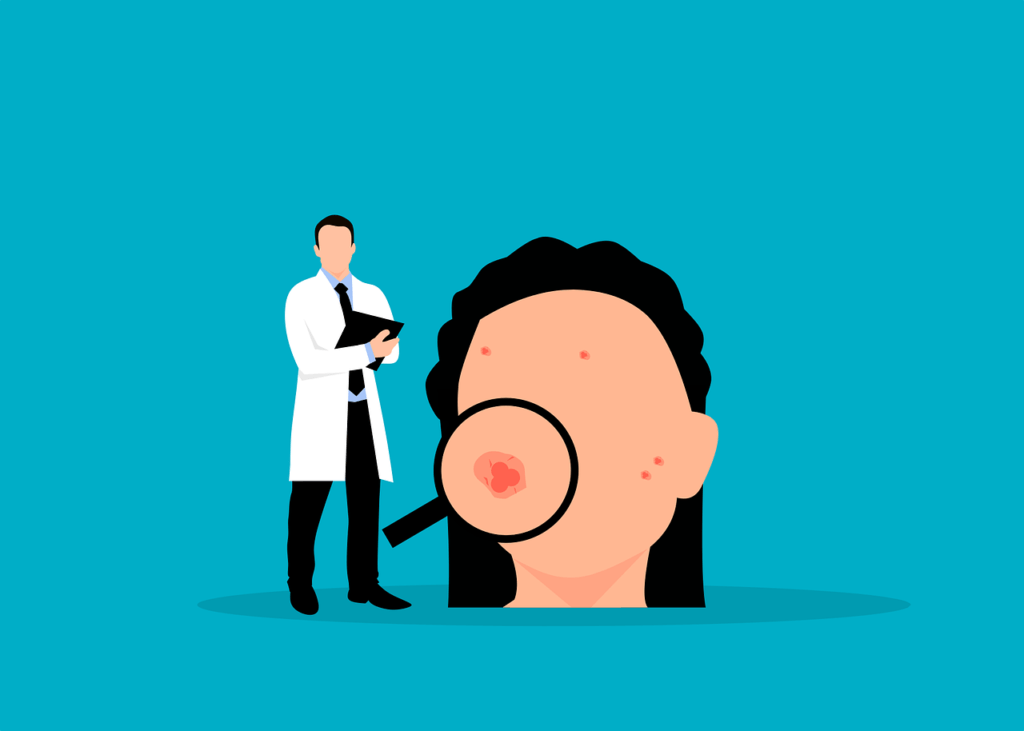In this article, you will discover a simple and effective way to combat acne using ibuprofen paste. Acne can be a frustrating and confidence-damaging condition, but with the help of this homemade remedy, you can take control of your skin and achieve a clearer complexion. By utilizing the anti-inflammatory properties of ibuprofen, you will learn how to make a soothing paste that targets acne and reduces redness and swelling. Say goodbye to expensive skincare products and hello to an affordable solution that can be made right in the comfort of your own home. Let’s dive in and uncover the steps to create your very own ibuprofen paste for acne.
Materials Needed
To make ibuprofen paste for acne, you will need the following materials:
Ibuprofen tablets
You will need a few ibuprofen tablets for this paste. Ibuprofen is readily available at most pharmacies and can be purchased over the counter.
Water
You will need water to mix with the crushed ibuprofen tablets. Make sure the water is clean and free from any impurities.
Mixing bowl
A mixing bowl will be required to crush the ibuprofen tablets and mix them with water. Choose a bowl that is large enough to hold the ingredients comfortably.
Spoon
A spoon will be used to crush the ibuprofen tablets and to stir the mixture. Choose a spoon that is sturdy and easy to handle.
Small container
You will need a small container to store the ibuprofen paste. Make sure the container is clean and has a lid to keep the paste fresh.
Preparation
Before applying the ibuprofen paste on your acne-affected areas, there are a few preparation steps you need to follow:
Step 1: Crush the Ibuprofen tablets
Start by crushing the ibuprofen tablets into a fine powder. You can do this by placing the tablets in a plastic bag and using a rolling pin or a heavy object to crush them. Alternatively, you can use a mortar and pestle to grind the tablets into a powder.
Step 2: Add water to the crushed Ibuprofen
Once the tablets are crushed, transfer the powder into a mixing bowl. Gradually add water and mix well until you achieve a paste-like consistency. The amount of water needed may vary, so add it slowly to avoid making the paste too thin.
Step 3: Stir the mixture
Using a spoon, stir the mixture well to ensure that the crushed ibuprofen is evenly distributed in the paste. This will ensure that each acne-affected area receives the desired benefits of ibuprofen.
Step 4: Adjust the consistency
If the paste is too thick, you can add a little more water and continue to stir until the desired consistency is achieved. On the other hand, if the paste is too thin, you can add more crushed ibuprofen to thicken it up.

Application
Now that you have prepared the ibuprofen paste, here’s how you can apply it to your acne-affected areas:
Step 1: Cleanse your face
Before applying the paste, make sure to cleanse your face thoroughly. Use a gentle cleanser or face wash to remove any dirt, oil, or makeup from your skin. Pat dry your face with a clean towel.
Step 2: Apply the paste on acne-affected areas
Using clean fingers or a clean spoon, apply a thin layer of the ibuprofen paste onto the acne-affected areas of your face. Focus on areas where you have active breakouts or inflammation. Be gentle while applying the paste to avoid causing further irritation.
Step 3: Leave the paste on for 10-15 minutes
Once the paste is applied, leave it on your face for about 10-15 minutes to allow it to work its magic. During this time, the ibuprofen will penetrate the skin and help reduce inflammation and redness associated with acne.
Step 4: Rinse off with warm water
After the designated time has passed, rinse off the ibuprofen paste with warm water. Gently massaging the paste with your fingertips while rinsing can help exfoliate the skin and remove any impurities. Pat dry your face with a clean towel.
Frequency of Use
The frequency of using ibuprofen paste for acne can vary depending on your skin’s tolerance and the severity of your acne. Here are some general guidelines:
Daily use
If you have mild to moderate acne, you can use the ibuprofen paste daily. However, it is advisable to monitor your skin for any signs of irritation or dryness. If you notice any adverse reactions, reduce the frequency or discontinue use.
Alternate day usage
For those with sensitive skin or acne that is prone to irritation, using the ibuprofen paste every other day may be more suitable. This allows the skin to rest and recover between applications.
Frequency based on skin tolerance
Everyone’s skin is unique, so it’s important to pay attention to how your skin responds to the ibuprofen paste. If your skin becomes red, itchy, or irritated after using the paste, reduce the frequency of use or discontinue it altogether.

Benefits of Ibuprofen for Acne
Ibuprofen is not only useful for relieving headaches and muscle aches but can also provide several benefits for acne-prone skin. Here are some of the benefits of using ibuprofen paste for acne:
Reduces inflammation
One of the primary benefits of ibuprofen for acne is its ability to reduce inflammation. Ibuprofen has anti-inflammatory properties that can help soothe the redness and swelling associated with acne breakouts.
Soothes redness and swelling
In addition to reducing inflammation, ibuprofen can also help soothe the redness and swelling that often accompany acne breakouts. Applying ibuprofen paste can provide temporary relief and help calm and cool the skin.
Helps to unclog pores
Ibuprofen paste can also help unclog pores, which can contribute to the development of acne. The paste helps to loosen the debris and excess sebum that can clog the pores, allowing them to breathe and reducing the likelihood of breakouts.
Minimizes the appearance of acne scars
Acne scars can be a persistent reminder of past breakouts. Ibuprofen can help minimize the appearance of acne scars by reducing inflammation and promoting healing. Regular use of the paste can lead to a smoother and more even complexion over time.
Precautions
While ibuprofen paste can be beneficial for acne treatment, it’s important to take certain precautions to ensure your safety and avoid any potential adverse reactions. Consider the following precautions before using ibuprofen paste:
Do not use on broken or irritated skin
Avoid applying ibuprofen paste to broken or irritated skin, as it may further exacerbate the condition. Wait until your skin has healed before using the paste to prevent irritation or infection.
Avoid contact with eyes
When applying ibuprofen paste, be cautious to avoid contact with your eyes. Ibuprofen can be irritating to the eyes and may cause discomfort or blurry vision. If the paste accidentally gets in your eyes, rinse them thoroughly with cool water and seek medical attention if necessary.
Discontinue use if any adverse reactions develop
If you experience any adverse reactions, such as severe redness, itching, or a burning sensation after using the ibuprofen paste, discontinue use immediately. These reactions could be a sign of an allergic reaction and should be evaluated by a healthcare professional.

Alternatives to Ibuprofen Paste
If you’re unable to use ibuprofen or prefer alternative treatments, there are several other options available for acne treatment. Here are a few alternatives to ibuprofen paste:
Salicylic acid paste
Salicylic acid is a common ingredient in many acne treatments. It helps exfoliate the skin, unclog pores, and reduce inflammation. Using a salicylic acid paste can be an effective alternative to ibuprofen for acne treatment.
Tea tree oil application
Tea tree oil possesses natural antibacterial and anti-inflammatory properties, making it an excellent choice for acne treatment. Applying a diluted solution of tea tree oil to the acne-affected areas can help soothe inflammation and prevent bacterial overgrowth.
Benzoyl peroxide cream
Benzoyl peroxide is another popular ingredient found in many acne products. It effectively kills the acne-causing bacteria and helps remove excess oil from the skin. Consider using a benzoyl peroxide cream or gel as an alternative to ibuprofen paste.
Combining Ibuprofen with Other Ingredients
To enhance the effectiveness of ibuprofen paste or target specific acne-related concerns, you can combine ibuprofen with other natural ingredients. Here are a few combinations that you can try:
Honey and Ibuprofen paste
Honey is known for its antibacterial properties and can help soothe inflammation. Mixing honey with ibuprofen paste can create a potent acne-fighting mixture that hydrates the skin and promotes healing.
Aloe vera and Ibuprofen paste
Aloe vera has cooling and soothing properties that can provide immense relief to inflamed acne-affected areas. Combining aloe vera gel with ibuprofen paste can further enhance the anti-inflammatory effects and support the healing process.
Lemon juice and Ibuprofen paste
Lemon juice contains citric acid, which acts as a natural exfoliant and lightens acne scars. Mixing lemon juice with ibuprofen paste can help further exfoliate the skin, reduce pigmentation, and refresh the complexion.
Additional Tips
To make the most of your ibuprofen paste for acne treatment, consider the following additional tips:
Perform a patch test before using the paste
Before applying the ibuprofen paste to your face, perform a patch test on a small area of your skin. This will help you determine if you have any allergies or sensitivities to the ingredients and prevent any adverse reactions.
Consult a dermatologist for severe acne
If you have severe acne or if your acne does not improve with home remedies, it’s best to consult a dermatologist. They can provide a thorough evaluation of your skin and recommend the most suitable treatment options for your specific condition.
Maintain a healthy skincare routine
While ibuprofen paste can provide temporary relief for acne, it’s important to maintain a consistent and healthy skincare routine. Cleanse your face twice a day, moisturize regularly, and use non-comedogenic products to prevent future breakouts and promote overall skin health.
Conclusion
Ibuprofen paste can be a useful and accessible option for treating acne. Its anti-inflammatory properties, ability to soothe redness and swelling, as well as its potential to unclog pores and minimize acne scars, make it a popular choice for many. However, it’s important to take precautions, consider alternative treatments, and consult a dermatologist if needed. With regular use and a dedicated skincare routine, you can work towards a clearer and healthier complexion.
More about How Often To Steam The Face For Acne




